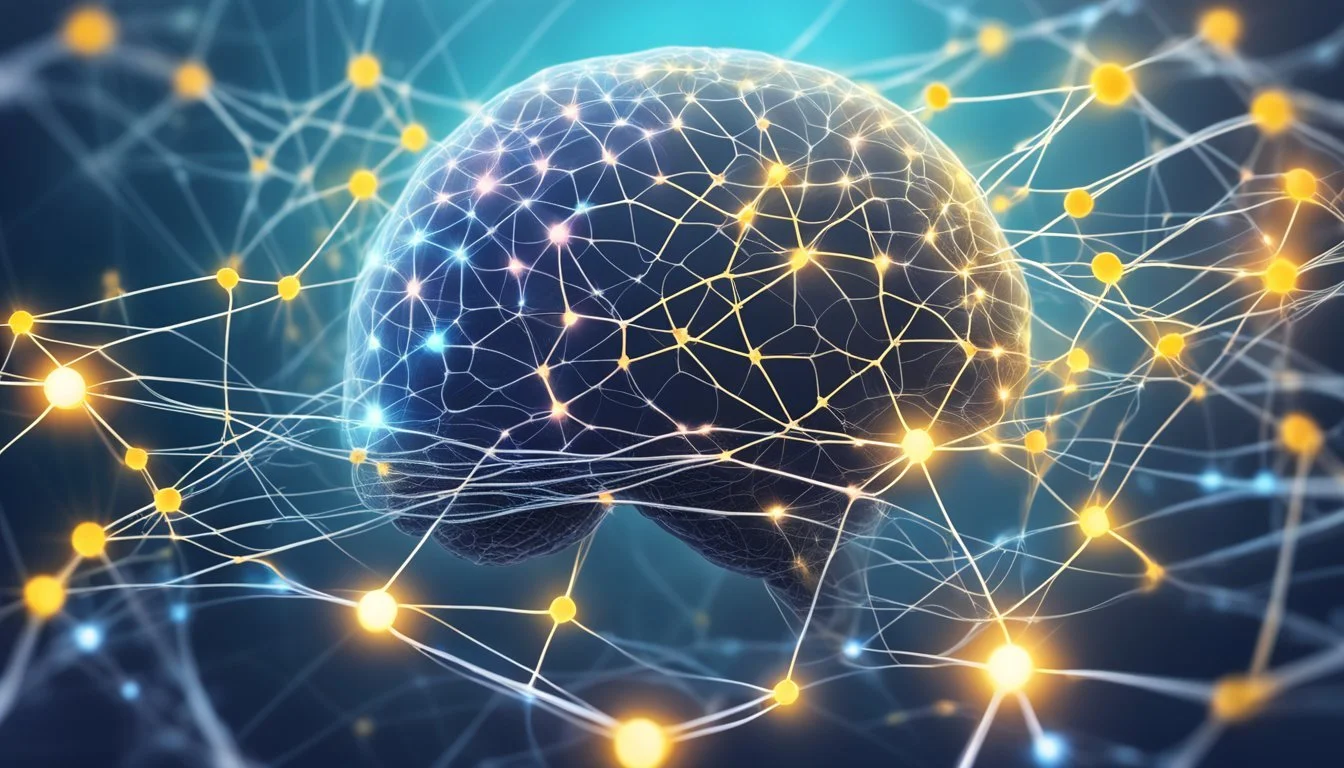6 Ways Intelligence Influences Decision-Making
Cognitive Processes Unveiled
Intelligence plays a crucial role in shaping how we approach decision-making. It influences our ability to analyze information, weigh options, and anticipate potential outcomes. Cognitive capabilities, emotional awareness, and social understanding all contribute to the quality and effectiveness of our choices.
In today's complex world, decision-making often involves processing vast amounts of data and considering multiple factors. Intelligence aids in navigating these challenges by enhancing problem-solving skills, pattern recognition, and logical reasoning. Understanding the interplay between intelligence and decision-making can help individuals and organizations improve their decision-making processes and outcomes.
1) Analytical Skills and Rational Choices
Intelligence plays a crucial role in developing analytical skills, which are essential for rational decision-making. Individuals with higher cognitive abilities can process complex information more effectively, leading to better-informed choices.
Analytical thinkers excel at breaking down problems into smaller components. This skill allows them to evaluate each aspect systematically, considering various factors and potential outcomes before reaching a conclusion.
Rational decision-making relies on logical reasoning and objective analysis. Intelligent individuals are often better equipped to separate emotions from facts, enabling them to make choices based on evidence rather than impulse or bias.
The ability to identify patterns and relationships is another key aspect of analytical thinking. Those with higher intelligence can often recognize trends and connections that may not be immediately apparent to others, informing their decision-making process.
Critical evaluation of information is a hallmark of analytical thinking. Intelligent individuals are more likely to question assumptions, seek out multiple perspectives, and verify data before incorporating it into their decision-making framework.
2) Emotional Intelligence and Empathy
Emotional intelligence plays a crucial role in decision-making processes. It enables individuals to recognize and manage their own emotions while understanding those of others.
This awareness allows for more thoughtful and considerate choices, especially in interpersonal situations. People with high emotional intelligence can better navigate complex social dynamics and make decisions that account for others' feelings.
Empathy, a key component of emotional intelligence, further enhances decision-making abilities. It allows individuals to put themselves in others' shoes and consider multiple perspectives before reaching a conclusion.
Leaders with strong emotional intelligence and empathy often make more effective decisions. They can read social cues, motivate team members, and build strong relationships, leading to improved outcomes in both personal and professional settings.
These skills also contribute to better conflict resolution. Emotionally intelligent individuals can regulate their reactions and approach disagreements with a level-headed mindset, leading to more constructive solutions.
By incorporating emotional intelligence and empathy into the decision-making process, individuals can make choices that are not only logical but also socially and emotionally astute.
3) Cognitive Bias and its Impact
Cognitive biases significantly influence decision-making processes. These mental shortcuts can lead individuals to make systematic errors in judgment and choice.
Overconfidence bias is a common cognitive bias that affects decision-making. It causes people to overestimate the accuracy of their judgments, potentially leading to risky choices.
The availability heuristic is another cognitive bias that impacts decisions. It leads individuals to rely on readily available information, potentially overlooking important but less accessible data.
Confirmation bias can also sway decision-making. This bias causes people to seek out information that supports their existing beliefs while ignoring contradictory evidence.
Anchoring bias affects decisions by causing individuals to rely too heavily on the first piece of information encountered. This can lead to skewed judgments and suboptimal choices.
The sunk cost fallacy is a cognitive bias that influences people to continue investing in a course of action due to past investments, even when it's no longer rational to do so.
Recognizing these cognitive biases is crucial for improving decision-making. By understanding their impact, individuals can develop strategies to mitigate their effects and make more rational choices.
4) Critical Thinking Abilities
Critical thinking is a crucial component of intelligence that significantly influences decision-making. It involves the ability to analyze information objectively, evaluate arguments, and draw logical conclusions.
Individuals with strong critical thinking skills can effectively assess complex situations and identify potential solutions. They excel at recognizing patterns, detecting inconsistencies, and questioning assumptions.
Critical thinkers are adept at gathering relevant information from various sources and synthesizing it to form well-reasoned judgments. This skill enables them to make more informed and rational decisions.
They also possess the capacity to consider multiple perspectives and anticipate potential outcomes. This broader view helps them navigate uncertainty and make choices that are more likely to yield positive results.
Critical thinking enhances problem-solving abilities by promoting systematic approaches to challenges. It encourages individuals to break down complex issues into manageable components and address them methodically.
Moreover, critical thinkers are less susceptible to cognitive biases and emotional influences that can cloud judgment. This objectivity leads to more balanced and effective decision-making across various domains of life.
5) Creative Problem-Solving
Creative problem-solving is a crucial aspect of intelligent decision-making. It involves generating innovative solutions to complex challenges by thinking outside conventional boundaries.
Intelligence plays a significant role in this process. Individuals with higher cognitive abilities can often make unique connections between seemingly unrelated concepts, leading to novel ideas.
Creative problem-solving relies on both divergent and convergent thinking. Divergent thinking allows for the generation of multiple potential solutions, while convergent thinking helps evaluate and refine these ideas.
This approach is particularly valuable in rapidly changing business environments. It enables leaders to adapt quickly and find effective solutions even when traditional methods fall short.
Research suggests that creative problem-solving activates multiple brain networks. It engages both the cognitive control network, responsible for planning and problem-solving, and the default mode network, associated with mind-wandering and imagination.
By fostering creativity in decision-making processes, organizations can tap into their employees' full potential. This approach often leads to more innovative and effective solutions to complex problems.
6) Strategic Vision and Planning
Strategic vision shapes an organization's long-term direction and goals. It provides a clear picture of what the company aims to achieve in the future, typically within a 5-10 year timeframe.
This forward-looking perspective influences decision-making at all levels of the organization. Leaders use strategic vision to guide resource allocation, prioritize initiatives, and evaluate opportunities.
A well-crafted vision statement aligns teams around common objectives. It helps employees understand how their work contributes to broader organizational aims.
Strategic planning translates vision into actionable steps. This process involves analyzing the current situation, setting specific goals, and developing strategies to reach them.
Intelligence plays a crucial role in both vision-setting and planning. Market research, competitor analysis, and trend forecasting inform leaders about potential future scenarios.
Data-driven insights help organizations identify strengths, weaknesses, and areas for growth. This information supports more effective strategy formulation and decision-making.
Regular review and adjustment of plans ensure they remain relevant as conditions change. Agile planning approaches allow for faster responses to new intelligence and shifting circumstances.
Understanding Intelligence
Intelligence plays a crucial role in shaping decision-making processes. It encompasses various cognitive abilities that influence how individuals perceive, analyze, and respond to information.
Definition of Intelligence
Intelligence refers to the mental capacity to acquire knowledge, think critically, and apply reasoning to solve problems. It involves the ability to learn from experiences, adapt to new situations, and comprehend complex ideas.
Cognitive psychologists define intelligence as a set of mental processes that enable individuals to navigate their environment effectively. These processes include memory, attention, perception, and language skills.
Intelligence is not a fixed trait but can be developed and enhanced over time through education, practice, and exposure to diverse experiences.
Types of Intelligence
Multiple intelligence theory proposes that intelligence is not a single, unified concept but consists of various distinct abilities:
Logical-Mathematical: Skills in reasoning, problem-solving, and working with numbers
Linguistic: Proficiency in language use and communication
Spatial: Ability to visualize and manipulate objects mentally
Musical: Talent in recognizing and creating musical patterns
Bodily-Kinesthetic: Physical coordination and dexterity
Interpersonal: Understanding and interacting effectively with others
Intrapersonal: Self-awareness and emotional intelligence
Each type of intelligence contributes uniquely to decision-making processes. For example, logical-mathematical intelligence aids in analyzing data and making rational choices, while interpersonal intelligence helps in understanding the social implications of decisions.
Recognizing these diverse forms of intelligence can lead to more comprehensive decision-making approaches that leverage different cognitive strengths.
The Role of Intelligence in Decision-Making
Intelligence plays a crucial role in shaping how individuals approach and make decisions. It influences both cognitive processes and emotional aspects of decision-making.
Cognitive Processes
Intelligence impacts various cognitive processes involved in decision-making. Higher cognitive abilities are associated with improved information processing and analysis. Individuals with higher intelligence tend to gather more relevant information before making choices. They often demonstrate better problem-solving skills and can evaluate multiple options more effectively.
Studies show that intelligence correlates with decision-making competence. Those with higher IQs typically make higher-quality decisions across various domains. They exhibit enhanced risk adjustment capabilities, allowing for more nuanced assessments of potential outcomes.
Intelligence also affects deliberation time. People with higher cognitive abilities may take longer to make decisions, as they consider more factors and potential consequences.
Emotional Intelligence
Emotional intelligence (EI) significantly influences decision-making processes. Individuals with high EI are better equipped to recognize and manage their emotions during decision-making. This skill helps them avoid impulsive choices driven by temporary emotional states.
High EI is linked to improved social decision-making. These individuals often demonstrate greater empathy and can better understand others' perspectives. This ability proves valuable in collaborative decision-making environments.
Emotional intelligence aids in stress management during challenging decisions. People with high EI typically handle pressure more effectively, leading to clearer thinking and more rational choices.
EI also contributes to adaptability in decision-making. Emotionally intelligent individuals can adjust their approach based on changing circumstances and new information.
Factors Influencing Intelligent Decisions
Intelligence shapes decision-making through various factors. These include the environment in which decisions are made and the accumulation of experience and learning over time.
Environmental Factors
The decision-making environment plays a crucial role in intelligent choices. Physical surroundings, such as noise levels or lighting, can impact cognitive performance. Social environments, including team dynamics and organizational culture, influence how information is processed and decisions are reached.
Time pressure is another key factor. Urgent situations may lead to quick, intuitive decisions, while more relaxed environments allow for thorough analysis. Available resources, such as data, tools, and expert input, also shape the quality of decisions.
Economic conditions and market trends create contexts that smart decision-makers must navigate. Regulatory frameworks and legal considerations set boundaries for choices in many fields.
Experience and Learning
Past experiences significantly inform intelligent decision-making. Lessons learned from previous successes and failures help refine judgment over time. Expert decision-makers often rely on pattern recognition honed through years of practice.
Formal education and training provide foundational knowledge and analytical frameworks. Ongoing learning, through professional development or self-study, keeps decision-making skills sharp and relevant.
Feedback loops are essential for improving decision quality. Analyzing outcomes and adjusting approaches accordingly leads to more refined choices over time. Mentorship and collaboration with experienced colleagues can accelerate this learning process.
Cognitive biases, formed through experience, can sometimes hinder objective decision-making. Awareness of these biases is crucial for making truly intelligent choices.



